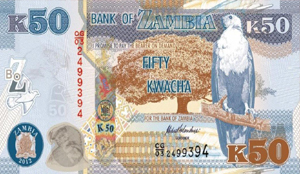 By JAMES KUNDA-
By JAMES KUNDA-
The Jesuit Centre for Theological Reflection (JCTR) has said the gradual depreciation of the Kwacha against other major convertible currencies such as the United States Dollar, should be addressed from a comprehensive perspective.
JCTR said in addressing root causes of the Kwacha’s depreciation, a broad range of factors should be comprehensively considered.
There was also the need by Government to continue diversifying the country’s sources of foreign exchange besides traditional exports such as copper.
In its monthly brief, JCTR said this should be done on a long-term measure to stabilise the Kwacha for it to compete favourably with other convertible currencies such as the United States dollar.
To ensure continued attraction of the economy to investors, Government policies must be seen to be consistent and coherent in terms drafting, implementation and adherence to set policies.
“Zambia being a largely importing economy, the continued depreciation of the Kwacha will increase the already high cost of living as import costs may be transferred to consumers. While short-term measures to stabilise the Kwacha are welcome, there is need to focus on long-term solutions,” JCTR said.
Meanwhile, the cost of living for the month of February, 2014 as measured by the JCTR Basic Needs Basket (BnB) for an average family of five living in Lusaka stood at K 3,616.
This shows an increase of K11.27 compared to the month of January, 2014 when the BnB stood at K3, 605.
The increase in the BnB is mainly due to an increase in the cost of vegetables.
“The cost of dark green vegetables, tomatoes and onions increased, from K2.83 to K5.21, K4.99 to K7.54, K4.61 to K6.12, per kilogramme respectively.”
These increases are because of decreased seasonal availability of vegetables.






